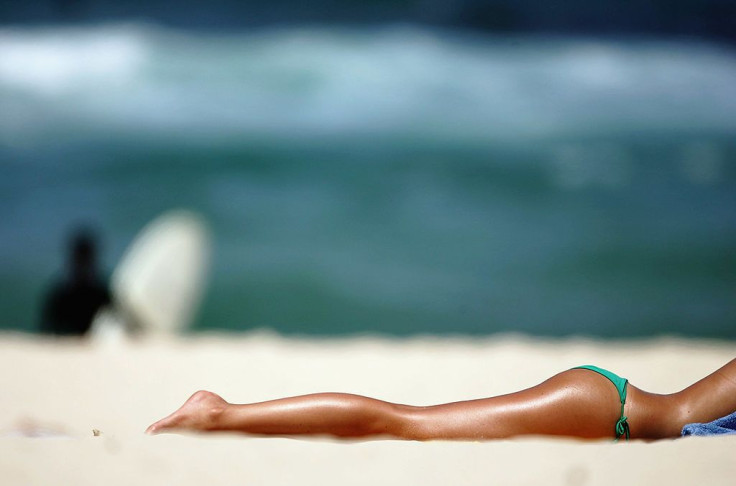
When we think of summer vacation, the sun and the beach is what usually comes to mind, but in the same way, it is not a mystery the serious damage that can cause the effects of the sun on our skin. Having a healthy holiday or vacation away from all kinds of risk should be a priority for everyone. The U.S. Food and Drug Administration shared five tips that can make your summer a good experience.
Find below detailed information on how to protect yourself and your family not only from the sun, but also from other factors that could affect your body.
1. Avoid tanning, stay safe from the sun
Thinking about getting a "healthy tan" this summer? Think again. Any increase in pigmentation of the skin is an indication of damage. The ultraviolet radiation of the sun can cause wrinkles and spots, among other problems; and tanning increases your risk of getting skin cancer. In addition, light reflecting on sand or water increases exposure to ultraviolet radiation, as well as your risk of eye problems.
Sunscreen is regulated as a cosmetic in Europe, but in the U.S. it's regulated as a drug b/c it makes a drug claim https://t.co/YC5itkKOYf pic.twitter.com/X0qDh4qxx2
— U.S. FDA (@US_FDA) May 24, 2017
Here is how to protect yourself from the sun:
- Use sunscreen.
- Wear sunglasses or dark glasses.
- Wear protective clothing.
- Know the reality about tanning beds: You may be tempted to "pre-marry" before going on vacation to the beach, but do not. The lamps of these beds emit an ultraviolet radiation that can be more intense and harmful than the light of the sun.
2. Check your medications before you leave
Know what medications you will need while on vacation. Make sure you have enough money to last the entire trip. Also read the instructions on how to take the medicines. Look for warnings about the interactions your medicines might have with certain foods or drinks, and other side effects. For example, some medications may make you more sensitive to sunlight. Talk to your health care provider about any concerns or questions you may have about your medications before you leave. Do not skip doses, do not share your medicine, and do not take more than the suggested dose.
Have your medicines with you when you travel (if you fly, you will not want to land in Cancun and have your medicines in Cleveland). And have a detailed list of what you are taking and write down the telephone number of your health care provider. This information will help if you need medical attention.
3. Be careful with contact lenses
If you wear contact lenses, make sure you have everything you need for the duration of the trip. To avoid problems such as eye infections and ulcers in the cornea, make sure a professional prescribes your contact lenses. Avoid cosmetic or colored contact lenses that are sold at beauty stores or on the boardwalk, as they can damage your eyes.
Wash hands before touching contact lenses and use an aseptic solution. Never allow your lenses to come into contact with saliva or non-sterile water, including a wrench, a bottle or the sea (unsterilized water can put you at risk for eye infection). So take them off before you swim or get into the hot tub and follow the other instructions from your eye care professional about how to take them off and take care of them.
Do not forget to also bring glasses in case your eyes become irritated. If you experience any change in vision, your eyes become red, watery, or you feel or itching in your eyes, remove contact lenses and seek medical attention.
4. Think twice before getting a permanent tattoo or henna tattoo during your vacation
It is common to find tattoo parlors and henna applications on the boardwalks and other parts around the beach. Whether you're thinking of getting a temporary tattoo or a permanent tattoo, think about it before you risk it. Getting a tattoo can put you at risk for serious infections such as HIV or hepatitis if you are exposed by the use of unhygienic tools, practices or products. In addition, ink from tattoos can cause allergic or other reactions.
The FDA has not approved any type of ink to inject into the skin and, as a general rule, does not actively control the tattoo parlors. The FDA has also not approved hair dye or henna for use on the skin, and some people have reported serious problems after using henna, including allergic reactions such as rashes and scars.
5. Stay hydrated and eat healthy
Dehydration occurs when your body does not have as much water and fluids as it should, and can be mild, moderate, or severe. So avoid getting dehydrated. For example, when you spend a long afternoon on the beach (remember to stay safe from the sun!), Take and drink water, even before you feel thirsty. That said, also take care of taking ice or tap water in places where it is not safe to do so (research more on the causes and symptoms of dehydration at the National Library of Medicine in the United States).
In addition to staying hydrated, try to opt for healthy foods. If you go to a buffet, for example, you can follow the food rules by first using fruits, vegetables and whole grains, then add the protein source.
© 2024 Latin Times. All rights reserved. Do not reproduce without permission.
